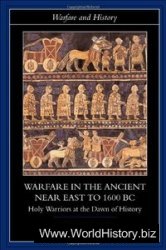With the achievement of Catholic emancipation O'Connell fell back on the cause that was his perpetual goal, the repeal of the Act of Union. Probably he realized the unlikelihood of its being attained, but he used it as an issue with which to rally mass support and to pressure the authorities for reforms short of repeal. In early 1830 he formed a Society for the Repeal of the Union. Like the Catholic Association, the new group held collections, part of whose proceeds went to subsidize O'Connell, who had to forsake a formidable income as barrister while pursuing political agitation and while serving in parliament. Enemies would make much of this "O'Connell Tribute."
In a general election that year, necessitated by the succession of King William IV upon the death of his brother, George III, O'Connell was returned along with 30 others committed to repeal of the union. At the time Europe was again experiencing revolution. In France the Bourbon king had been forced from the throne and replaced with his liberal cousin, Louis Philippe. Uprisings occurred in various German states, and Belgium seceded from its unification with the Netherlands imposed by the Congress of Vienna. Within Britain, agitation was afoot for long-sought parliamentary reform. Reform would entail eliminating or at least lessening the number of "rotten boroughs," that is, those constituencies that had very few electors and, for that matter, few residents. This situation contrasted with that of many newer cities, which had grown in conjunction with the Industrial Revolution and which did not have specific representation, aside from the countywide member elected primarily by rural 40-shilling freeholders. Reform would also broaden the franchise in the boroughs.
The Whigs in parliament were sympathetic to a certain degree of reform, while a few radicals, inspired by the writings of those such as Jeremy Bentham and John Stuart Mill, sought broader reforms. The attempted opposition of the House of Lords and the king caused a Whig ministry that reflected the majority in parliament to be replaced by the Tories under Wellington. But Wellington and the king quickly realized that the time had come when government would have to reflect the majority in the House of Commons and so they allowed Lord Grey and the Whigs to return to power. The Tory-dominated House of Lords accepted the Reform Act in 1832 when faced with the prospect that the king would use his prerogative to appoint sufficient new members to guarantee passage if they would not accede.
The Reform Act, which eliminated a few rotten boroughs and established a uniform franchise requirement for the others, scarcely brought in democracy, as the electorate remained a very small percentage of the population, but it now included a greater proportion of middle-class and professional people. As far as Ireland was concerned, it left the forty-shilling freeholders disenfranchised, but it did add five more members who could be elected from Ireland. The act, which launched a move away from the old Tory notion of viewing parliament as a grand jury whose members ought be seen as acting on their own rather than as representatives of constituencies, made inevitable future gradual broadening of the franchise until democracy was attained. In all this O'Connell and his following from Ireland were allied with the radicals desirous of broader reform.
An immediate issue that O'Connell hoped the more reform-minded Whigs would take on in Ireland was the matter of tithes, that is, the compulsory taxation paid to the established Church of Ireland to which only about a tenth of the population belonged. Naturally the Catholics, and non-Episcopal Protestants, preferred the complete abolition of tithes. The government was less inclined to abolish them, but sought rather to rationalize them. For instance, one grievance had been that tithes had been based on tillage rather than pasture income, which placed the burden more on small tenants than on large landlords. Another source of complaint was the surplus number of bishops and churches, most of which had virtual ghost congregations in overwhelmingly Catholic areas. A complication in any reform was the fact that many of the tithes had been passed from the church to private individuals, who regarded them as a form of private property.
The demand for tithe reform came from O'Connell, the Catholic bishops, and middle-class liberals who regarded it as an anachronism. It was also sought by the rank-and-file Catholic peasantry who bore the brunt of the tithes, even if disguised as part of the rent to their landlords, and who were drawn to the still very strong secret societies that were inclined to agrarian violence ranging from cattle-maiming to murder. Ireland in the 1830s experienced a very high incidence of violence. O'Connell realized that incendiary agitation could provoke the very upheaval he most wished to avoid. Awareness of this danger prompted the government to pass coercion legislation allowing the lord lieutenant to suppress public meetings and to designate certain counties as being in a state of insurrection where ordinary courts could be replaced by martial law.
While O'Connell's followers among the Irish parliamentary representation had increased in the 1832 election to 39 (which suggests the loss of the fortyshilling freeholder votes was not disastrous), the Whig government of Lord Grey, especially its chief secretary for Ireland, Edward Stanley (later Lord Derby), was unwilling to go the whole way in appeasing the tithe agitation. They did put forward an Irish Church Temporalities Act, which eliminated a number of bishoprics and taxed a number of church benefices. The revenue gains from the reduced costs of the establishment were put at the discretion of commissioners for ecclesiastical use. The government viewed this approach as a compromise between the expectations of the O'Connellites and English radicals that the financial gains should go for secular purposes as a first step toward disestablishment and the outrage of high church supporters at what was seen as a statist assault on the church itself.6
His dissatisfaction with the inadequacy of the church measure and his displeasure at the coercion legislation prompted O'Connell to raise the issue of repeal of the union. This assertion of the ultimate demand in his program, however, fell on deaf ears as the House of Commons voted 523 to 38 that the union be maintained as it was. O'Connell continued to advocate repeal in his campaigning in Ireland, but political movement within Britain would soon create an opportunity for him to advance more immediate and practical goals. A split in the government on the issue of appropriating some church revenues for secular purposes led to the prime minister's resignation. The reconstituted ministry led by Lord Melbourne had to ultimately give way to a Tory ministry headed by Robert Peel before the end of the year. During the general election of early 1835, O'Connell continued to invoke "Repeal," but soon after, in what was called the Lichfield House compact, he came to an understanding with Melbourne, who would become prime minister, and Lord John Russell, who would become home secretary, to collaborate in driving Peel from office in return for significant reforms within Ireland, particularly the advancement of the position of Catholics.
While O'Connell's faction in parliament declined in the 1835 election to 32 and in the 1837 election (occasioned by the succession the throne of the young queen Victoria) to 31, the second half of the decade brought significant advances for Catholics in accord with the Lichfield House compact. The person most closely connected with these was the undersecretary for Ireland, Thomas Drummond, a Scotsman who advocated impartiality of governmental administration in contrast to the prevailing Protestant Ascendancy bias. He expanded Peel's earlier police force by establishing a national constabulary, which became the Royal Irish Constabulary (RIC), to which great numbers of
Catholics were recruited. He appointed paid magistrates who would be free from local landlord pressure and included Catholics among the unpaid magistrates. He moved against the Orange Order, using the same instruments that earlier had been employed against both the Catholic Association and the Repeal Association to inhibit its demonstrations and minimize its dominance of local judiciaries. There were significant appointments of Catholics to senior positions in the public service. Drummond is remembered for his remark that "property has its duties as well as its rights," when suggesting to landlords that they were partly to blame for the degree of agrarian crime in Ireland. The impartial law enforcement he advanced helped to lessen that crime.
While tithes were not abolished, they were greatly reduced and imposed only on the landlords, while arrears were written off. The government also advanced to Ireland two other Whig-Radical reforms that had been established in Britain in the first half of the decade: poor law and municipal corporation reform. Both were reflective of the liberal-utilitarian principles of weakening privilege and advancing impartial government.
The "New Poor Law" of 1833 in England had replaced the centuries-old system of poor relief administered on a parish basis by the local vestry board, under which system landlords were able to supplement the inadequate wages they paid their laborers with poor relief. Under the new system, relief could be obtained only by taking up residence in a poor house, administered by poor law boards governing relatively equal territory not parallel to the old parish boundaries. The receipt of poor relief was to be almost punitive, as the conditions of the recipients were supposed to be worse than those of the lowest paid person actually employed. While "new," the logic of the poor law failed to appreciate the absence of personal responsibility for unemployment in an industrial age confronted with periodic recession.
Like many reforms that are temporarily fashionable, the extension of the measure was completely inappropriate for Ireland where there was no existing poor law system subject to the abuses of the older English system in Ireland and where poverty was so widespread that a punitive poorhouse system would barely touch the surface of the problem. However, one benevolent consequence was the creation of another layer of authority on a local level that would be elected, in contrast to the grand jury system where the landlord interests coopted from within their own ranks the members who would determine most matters of local governance, whether roads or public contracts, never mind judicial indictments.
The other measure was the Irish Municipal Corporations Act of 1840, which extended the same general principles of an 1835 act governing English borough governance to Ireland. The cities and towns of Ireland were almost entirely dominated by a single patron or a very limited electorate and almost entirely Protestant. The new law was not as generous as the English legislation, which allowed all ratepayers to vote for the towns' governors. It granted the franchise for municipal elections to a more limited electorate and restricted the elected councils' authority over the police. However, it did bring most of the town corporations under Catholic control. Significantly, O'Connell himself become lord mayor of Dublin in 1841.
Drummond's death in 1840, the weakening position of the Whigs under Lord Melbourne, and his anxiety that his movement not dissolve with the achievement of a limited number of reforms, prompted O'Connell to again raise the ultimate issue of repeal. As early as 1838 he had started a preliminary organization and in 1840 formed the National Repeal Association. The next year the Tories, now headed by Robert Peel, who had formulated the new label "Conservative" for the party, were in power. In the elections of that year the number of O'Connellites returned to parliament had shrunk to 18. The end of collaboration with the Whigs paved the way for O'Connell to return to mass movement politics, this time, for repeal.




 World History
World History









